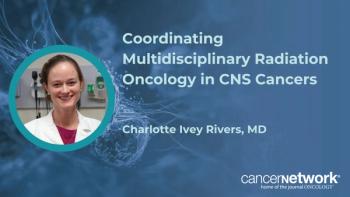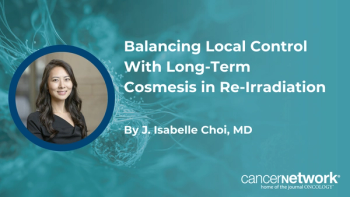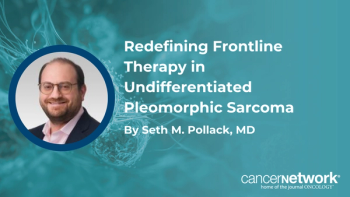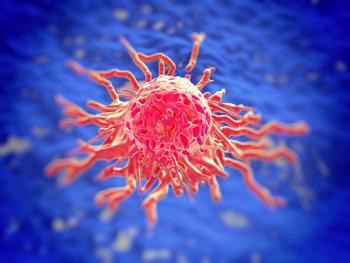
Reviewing Real-World Use of Beti-Cel in Transfusion-Dependent β-Thalassemia
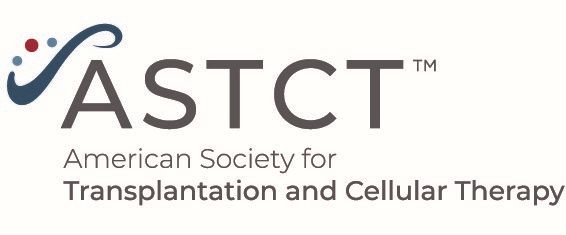
Therapies such as betibeglogene autotemcel have been “life-changing” for patients with β-thalassemia, according to Nora M. Gibson, MD, MSCE.
In a special cobranded episode between Oncology On the Go hosted by CancerNetwork® and the American Society for Transplantation and Cellular Therapy (ASTCT) program ASTCT Talks, Nora M. Gibson, MD, MSCE, and Taha Al-Juhaishi, MD, spoke about real-world applications of betibeglogene autotemcel (beti-cel; Zynteglo) as a treatment for patients with β-thalassemia. They spoke in the context of a study that Gibson presented at the
Gibson is a fourth-year fellow in bone marrow transplant and cellular therapy at the Children's Hospital of Philadelphia (CHOP), with a background in clinical research and epidemiology. Al-Juhaishi is the associate director of the Hematopoietic Stem Cell Transplantation and Cell Therapy Program at Oklahoma University Health Stephenson Cancer Center and an assistant professor of medicine at the University of Oklahoma College of Medicine.
Findings from Gibson’s study revealed that among 10 patients who underwent stem cell collection at CHOP from 2022 to 2024, beti-cel yielded consistent red blood cell transfusion independence, with investigators noting prolonged platelet engraftment time and high platelet transfusion requirements. Beyond these findings, the conversation focused on how beti-cel compares with other currently available gene therapies for patients with hemoglobin disorders as well as noncurative therapies such as allogeneic stem cell transplantation. Gibson and Al-Juhaishi also discussed strategies for mitigating occlusive disease and other potential toxicities associated with beti-cel.
“It's a really exciting time to be working in this field, where we finally have really good options for these patients. From our experience and from clinical trials, beti-cel and likely exagamglogene autotemcel [Casgevy]...are very effective, curative therapies for thalassemia in the real-world setting, and we've seen very similar results in sickle cell disease,” Gibson said. “These therapies have been life-changing for our patients, and they've had a huge reduction in their symptoms and a huge reduction in their burden of health care that's required.”
References
- Gibson NM, Friedman DF, Elgarten CW, et al. Post-approval, real-world experience with betibeglogene autotemcel for transfusion-dependent beta thalassemia. Transplantation and Cellular Therapy. 2025;31(2):S254. doi:10.1016/j.jtct.2025.01.386
- FDA approves first cell-based gene therapy to treat adult and pediatric patients with beta-thalassemia who require regular blood transfusions. News release. FDA. August 17, 2022. Accessed April 21, 2025. https://tinyurl.com/3vrkk8kz
Newsletter
Stay up to date on recent advances in the multidisciplinary approach to cancer.


